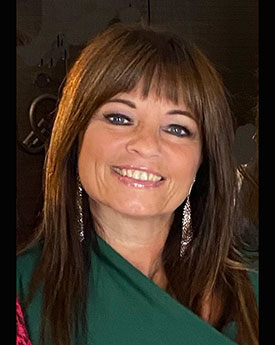Dr Alexander Wragge-Morley
Lecturer in the History of Science and MedicineProfile
I am a lecturer (equivalent to assistant professor) in the history of science and medicine. Through my research and teaching, I seek to understand how people in the past obtained knowledge through sensory experience. In particular, I ask how scientific and medical practitioners have related the pleasures and pains of the senses to the work of knowledge production. In doing so, I bring together histories of science, medicine, the body, the neurosciences, art, literature, and religion. I also have broad interests in the medical humanities, organizing research, podcasts, and events dealing with ideas about the human mind, bringing together scientists, artists, and humanities scholars. In addition, I am also enjoy discussing the history of the arts and sciences with broader audiences, whether through writing, podcasts, or film.
Research Interests
I work on the history of science in early modern Europe, focusing on Britain in the period 1650-1800. My main intellectual concern is the place of sensory experience – bodily, affective and aesthetic – in the production of knowledge. In addition, I have broad interests at the intersection of medicine, the sciences, and the humanities, working to bring scientists, artists, and humanities scholars into close communication.
In my first book Aesthetic Science: Representing Nature in the Royal Society of London, 1650-1720 (Chicago: University of Chicago Press, 2020), I addressed these themes by exploring the role of sensory pleasure and other forms of aesthetic experience in the models of empirical science promoted by members of the early Royal Society of London. This book argues that judgments of taste and the pleasures of aesthetic experience had a central role in the emergence of what we now understand as scientific objectivity. In turn, Aesthetic Sciences argues not only that the sciences of the 17th century had a far more significant role in the emergence of aesthetics and art criticism than has so far been recognized, but also that the conceptual resources of taste and aesthetic judgment can make a major contribution to our understanding of the formation of consensus in scientific communities.
I am now working on a new project the reconsiders the role of ideas about the body’s capacity for involuntary responses to sensory experience in the worlds of medicine, physiology, the arts, and aesthetic theory during the first half of the 18th Century. Entitled The Medical Origins of Aesthetics, 1700-1750, this project uses the theme of involuntary motion across a range of fields – from diet and medicine to physiology, moral philosophy and the arts – to offer a new history of the interconnections between medicine and aesthetic theory. In addition, this project explore how broadly medical arguments about the body’s (in)capacity for highly refined forms of sensory experience shaped changing discourses about the similarities and differences between humans and other animals.
I am also engaged in interdisciplinary projects that bridge the gap between research and pedagogy, as well as the gaps between the disciplines. With Lan A. Li at Rice University, I co-direct and sometimes present a series of podcasts, conferences, and public events examining scientific, medical, aesthetic, and scholarly perspectives on the human mind. I also promote the "chemical humanities," both by recreating historical experiments, and most recently by organizing events exploring the role of chemical compounds in human life.
Career Details
I have a PhD in the History and Philosophy of Science from the University of Cambridge. Before coming to Lancaster, I held positions at the University of Oxford, University College London, and New York University. Additionally, I held a Leverhulme Early Career Research Fellowship at University College London, and a postdoctoral fellowship jointly at the California Institute of Technology and The Huntington Library.
Web Links
https://alexwraggemorley.wordpress.com/
External Roles
Along with Lan A. Li of Rice University, I co-direct a series of podcasts dealing with the history and culture of the human mind, entitled Metaphors of the Mind.
PhD Supervision Interests
I would welcome enquiries from students interested in the history of science and medicine in the early modern period. I would particularly like to hear from students interested in the history of the senses and other forms of bodily experience, the interconnections between the arts and sciences, along with projects linking science to religion through aesthetics and/or sensory experience.
The Arts as Medicine? New Histories of the Arts and Health
01/09/2023 → 30/04/2025
Research
Ben Franklin goes to Borrowdale: Scientific Adventures in the English Lakes
06/06/2022 → 22/11/2022
Research
Workshop on Arts and Health, with Mural Painting
Participation in workshop, seminar, course
Habit, Medicine, and Efficacy in the 18th Century
Oral presentation
Regional Heritage Centre Study Day: ‘Carlisle Cathedral Library: past, present and future’
Participation in workshop, seminar, course
Mind, Body, and the Arts, 1100-1800
Symposium
Taste, habit, and degeneration in 18th-century Britain
Invited talk
Writing Sexual Violence in the Age of #MeToo
Types of Public engagement and outreach - Festival/Exhibition
Being Human 2022
Festival/Exhibition/Concert
- FASS Health Hub



